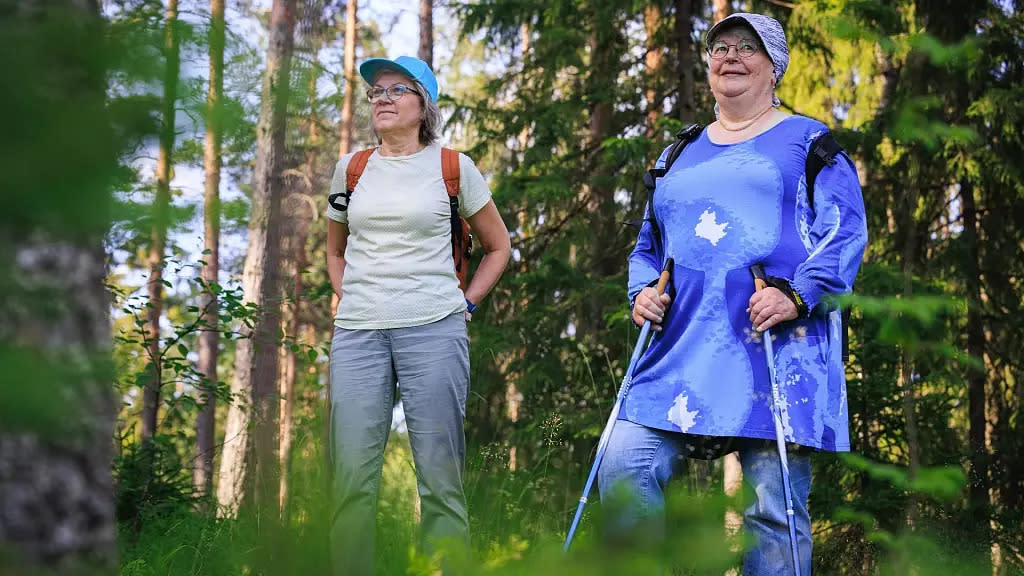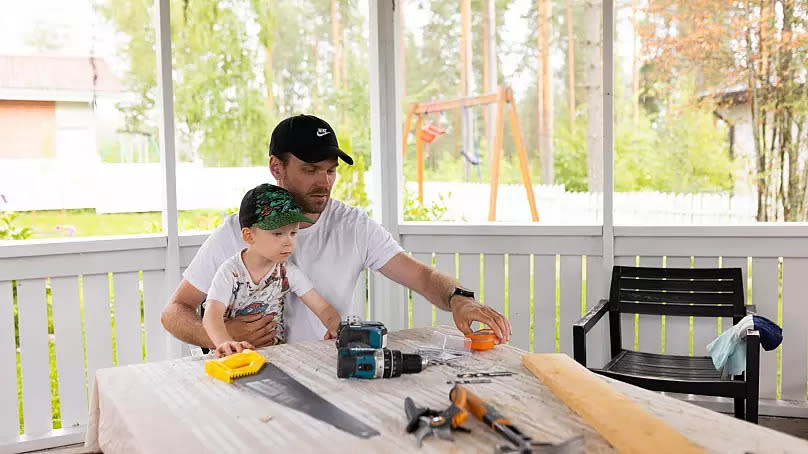This Finnish city is testing whether a green lifestyle has an impact on your health

Lahti, Finland, has invited a group of local residents to try a ‘planetary health plan’ to see if making greener choices could be good for your health.
In June, five individuals received personalised regimes put together by Finland’s first planetary health physician, Dr Hanna Haveri. They followed her recommendations for two months with their carbon emissions and overall health being tracked before and after the experiment.
Though the size of the study was small, it showed promising results for the concept of planetary health plans.
Lahti, named European Green Capital in 2021, is the first city to offer this programme in its healthcare services. The experiment is part of a 10-year initiative which studies the long-term impact of a greener lifestyle.
Don’t Pay UK: Why are Brits boycotting energy payments and what are the consequences?
Here are all the positive environmental stories from 2022 so far
What is planetary health?
Planetary health is the concept that our surroundings can affect our wellbeing and vice versa. It relies on the theory that the health of humanity is deeply intertwined with the health of nature and the environment.
The idea was popularised by a 2015 report from The Rockefeller Foundation - one of the largest philanthropic foundations in the world - and The Lancet medical journal. It found that a growing body of evidence showed that humanity’s actions put Earth’s key life support systems at risk.
The continued degradation of our natural systems threatens to reverse the health gains we have seen over the last 100 years, The Rockefeller Foundation–Lancet Commission on planetary health said.
According to the World Health Organisation, nearly one in four deaths around the world are now linked to environmental conditions. The WHO itself has just put its name to a letter from 1,175 professionals and organisations demanding global governments phase out fossil fuels for the sake of human health.
And that is just one way climate issues are impacting the health of people around the world.
Experts in planetary health believe that by working to slow down climate change, we could also improve our own wellbeing.
“In the light of research, nature promotes recovery. Even short nature visits restore stress levels, lower cortisol and improve immune regulation,” says Haveri.
“This is something that surprisingly many people do not think about.”
‘Green’ household products aren’t necessarily less toxic, say scientists
I swapped my iPhone for a Fairphone: Here’s why you should break up with Apple too
What benefits have participants in the planetary healthcare trial seen?
Participants in the experiment all lived in Lahti and came from a range of different backgrounds: from busy young professionals to families and retired people.
Despite some initial doubts, many came away impressed with what this ‘planetary prescription’ had done for them.
“Incorporating post-run barefoot forest walks into my exercise routine has been mind-blowing. I’m a performance-oriented person and this has helped me slow down and pay more attention to recovery, says Markus Kontiainen, a 30-year-old resident who took part.
Kontiainen's plan focused on mindfulness and recovery and after two months, he saw a 58 per cent reduction in his exhaustion levels.
Raija Repo, a grandmother concerned about the future of the planet, added 40 per cent more vegetarian food to her diet, reduced her dairy consumption and started to forage local foods. She saw a 35 per cent drop in her personal carbon footprint.

Overall, the five participants saw a 17 per cent decrease in their carbon footprint, a 16 per cent increase in their overall wellbeing and a 36 per cent drop in their exhaustion scores.
They also reported an increase in time spent in nature, something that previous research has shown is good for mental health and a range of other conditions. After eight weeks, results from the five residents showed a lowered heart age, better resistance to diabetes and an improved balance in fatty acids.
Lahti will be sharing its findings from this summer’s experiment - alongside other advice from Finnish planetary health experts - with the public on its social media accounts.

 Yahoo News
Yahoo News 




